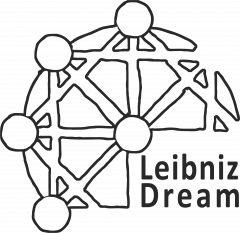Your question is not listed? Our lab manager Emilia Strom will be happy to answer any further questions. You can reach her via e-mail at leibnizdream.lab@leibniz-zas.de
FAQ Category: questions
Which measures will be taken to protect the privacy of my child?
Your child will be taking part in online experiments on language acquisition.
As a parent, you will be asked to confirm with your signature that a) you have been informed about the study, b) you agree to having your child included in the study, and c) you agree to the processing of your child’s data.
Every time your child participates in one of our studies, they will be attributed a secret code. We do not record names or other information that could be used to identify your child. In this way, your child’s performance during the experiment will be recorded anonymously.
During data analysis and processing, your child remains anonymous. Our employees do not have access to personalized or otherwise sensitive data.
Only the general results of the whole sample of participants will be disseminated to the global scientific community.
Who will be conducting the study with my child?
After filling out the contact form, you will receive an invitation every time we launch a new study. During the study, one of our colleagues will be there to walk you through the experiment via voice or video call.
Our experiments are designed by renowned scientists who are experienced in doing research with children. The head of the project is Uli Sauerland, head of the research area “Semantics&Pragmatics” at the Leibniz Centre for General Linguistics (ZAS).
The experiments are usually conducted by one of our student employees, which have been selected for their suitability and instructed to do online research with children by Dr. Sauerland. The experiments will be conducted in a relaxed, playful atmosphere free of pressure. We want the children to feel comfortable and encouraged to express themselves freely.
What happens if my child wants to quit?
No child has to take part in the study against their own will. That is why every child is asked before an examination whether they really want to take part. This will happen in a way that is appropriate for children. As a parent, you are free to stop the examination as soon as you get the impression that your child would like to stop.
How much time should I schedule to take part in an online study?
Taking part in an online study usually takes about 40 minutes (20 minutes for the experiment, 20 minutes for instructions and possible questions).
What is the LeibnizDream project?
The LeibnizDream project is a joint project of the Leibniz-Centre General Linguistics (ZAS), the Humboldt University of Berlin, and the University of Milan-Bicocca. The project is inspired by the German polymath Gottfried Wilhelm Leibniz. He was convinced that human language is the key to understanding the human mind. With the LeibnizDream project, our goal is to realize Leibniz’s dream and to prove that our thoughts determine language.
We predict that child languages are a better mirror of the human mind than adult languages. To better understand how children put their thoughts into words and how this process works in different languages, we have made it our mission to study language acquisition in more than 50 child languages across the world.
Being the first open, global research collaboration to conduct language acquisition studies, the LeibnizDream project aims at building a new model of language.
For its ambitious goals and the contribution to the study of language acquisition in infancy and adulthood, the LeibnizDream project has been selected for funding by the European Research Council (ERC).
